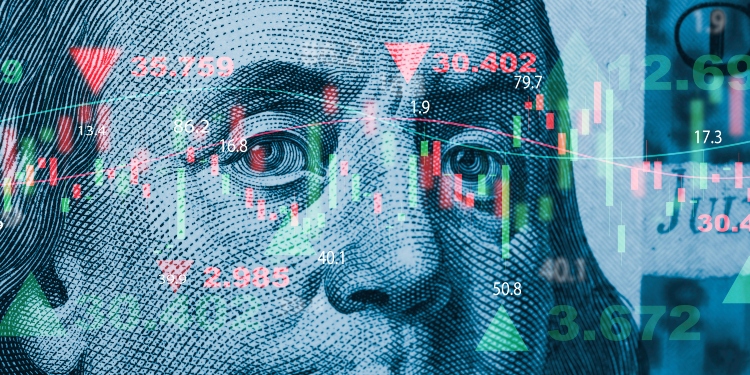In an increasingly globalized world, geopolitical tensions such as military conflicts, trade wars, or diplomatic stand-offs can have swift and severe impacts on financial markets. Among the most reactive of these markets is Forex (foreign exchange), where currency values can shift dramatically in response to global uncertainty.
For traders and investors, understanding how to navigate the Forex market during these periods is crucial. While tensions often bring volatility, they also open the door to strategic opportunities.
What is Forex Trading?
Forex trading involves buying and selling currencies with the goal of making a profit. Unlike the stock market, the Forex market operates 24 hours a day, five days a week, allowing traders to respond to global economic events in real-time.
Traders speculate on currency pairs like EUR/USD, GBP/JPY, and others, aiming to profit from fluctuations in exchange rates. The market is influenced by various factors including interest rates, political stability, economic performance, and global events.
A Real-Time Barometer of Global Sentiment
During geopolitical crises, this responsiveness makes the Forex market a valuable platform for both hedging risks and speculating on macroeconomic shifts.
Let’s explore how Forex trading can be effectively utilized during turbulent geopolitical times.
1. Hedging Against Currency Risk
For businesses and investors with international exposure, Forex trading can serve as a risk management tool. Currency values often react sharply to geopolitical events. A politically unstable country might see its currency depreciate rapidly, impacting importers, exporters, and cross-border investments.
Example:
A European company expecting payments in USD may choose to trade EUR/USD to protect against potential dollar depreciation. In doing so, they create a buffer against currency losses triggered by geopolitical news.
2. Safe Haven Currency Strategies
Periods of political or military unrest typically drive investors toward safe haven currencies that are perceived as stable and secure. These include:
- USD (U.S. Dollar) – The world’s reserve currency.
- CHF (Swiss Franc) – Known for Switzerland’s neutrality and robust financial system.
- JPY (Japanese Yen) – Historically favored in times of risk aversion.
Traders can capitalize on this behavior by buying these currencies against more vulnerable ones, anticipating capital flows from risk-off sentiment.
3. Trade Smart with XTB
XTB is one of the world’s leading Forex and CFD brokers, offering:
- Free, in-depth Forex education for beginners and advanced traders alike.
- Live and on-demand webinars covering strategy, analysis, and macroeconomic insights.
- The award-winning xStation 5 trading platform, with real-time news, advanced charts, and risk management tools.
- Over 8,000 instruments to choose from, including Forex pairs, indices, stocks, commodities, and ETFs, giving you the flexibility to diversify and react across markets during times of geopolitical uncertainty.
Whether you’re looking to hedge risk, trade volatility, or gain deeper insights into global financial flows, XTB provides the knowledge and infrastructure to support your trading goals.
4. Speculative Trading on Volatility
Volatility tends to surge during geopolitical uncertainty, creating short-term trading opportunities for skilled Forex traders. News-driven moves such as a sanctions announcement or a ceasefire can send currency pairs soaring or tumbling within minutes.
Speculative strategies include:
- Trading breakout patterns.
- Using straddle options.
- Applying short-term momentum indicators.
However, volatility cuts both ways, so risk management tools like stop-losses and proper leverage are critical.
5. Following Commodity-Linked Currencies
Geopolitical events often impact commodities like oil, gold, and gas. Since several currencies are closely tied to these resources, geopolitical shocks can indirectly influence Forex markets.
Watch these pairs:
- CAD (Canadian Dollar) – Strongly correlated with oil prices.
- AUD (Australian Dollar) – Tied to global demand for minerals and metals.
- NOK (Norwegian Krone) – Oil-exporting economy dynamics.
For instance, during a conflict that threatens Middle Eastern oil supply, rising crude prices might strengthen the Canadian dollar.
6. Anticipating Central Bank Reactions
Geopolitical instability often forces central banks to intervene or adjust policy in response to currency pressure, inflation concerns, or capital flight. Forex traders who monitor these moves closely can gain a valuable edge.
Expect:
- Emergency interest rate decisions.
- Currency interventions (buying or selling reserves).
- Verbal guidance (forward-looking statements).
For example, during major disruptions, a dovish shift by a central bank may weaken the local currency, signaling a potential trade setup.
Real-World Case: Russia-Ukraine Conflict
When Russia invaded Ukraine in 2022:
- The Russian Ruble (RUB) plummeted before recovering through strict capital controls and central bank action.
- The USD and CHF surged as safe haven demand spiked.
The Euro (EUR) weakened due to Europe’s proximity and energy dependence.
Traders who understood these dynamics were able to position themselves early in one of the most volatile market periods in recent years.
Proceed with Caution
While opportunities are present, so are the risks:
- Liquidity can thin out during high-stress events, widening spreads.
- Market gaps may bypass stop orders.
- Emotions run high, increasing the chance of impulsive decisions.
By strengthening your Forex foundation, you’ll be better equipped to manage uncertainty and potentially thrive when geopolitical tensions arise.
Conclusion
Geopolitical events are inevitable. But with the right knowledge and tools, Forex traders can respond strategically rather than emotionally. By leveraging safe havens, hedging strategies, and real-time analysis, you can transform market turbulence into opportunity.
Explore how to get started with confidence at XTB’s Forex education center today.
CFDs are complex instruments and come with a high risk of losing money rapidly due to leverage. 75% of retail investor accounts lose money when trading CFDs with this provider. You should consider whether you understand how CFDs work and whether you can afford to take the high risk of losing your money.
David Prior
David Prior is the editor of Today News, responsible for the overall editorial strategy. He is an NCTJ-qualified journalist with over 20 years’ experience, and is also editor of the award-winning hyperlocal news title Altrincham Today. His LinkedIn profile is here.













































































